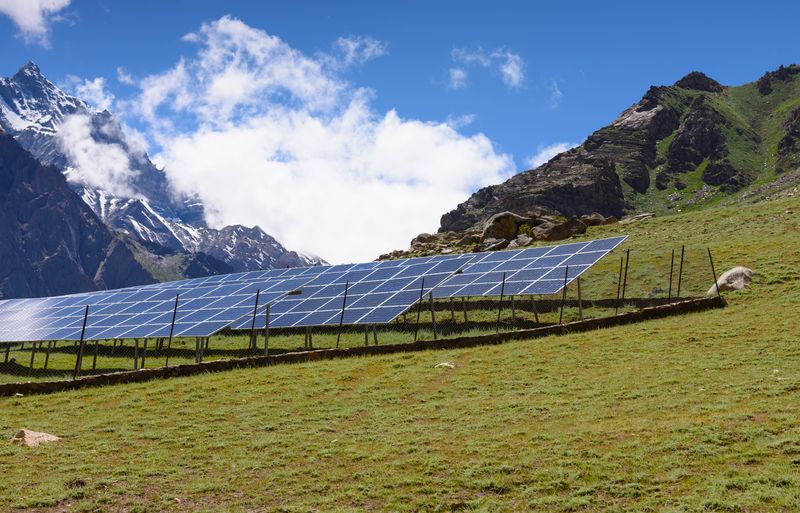India has grand ambitions when it comes to cutting its greenhouse gas emissions: in November 2021 at the COP26 meeting in Glasgow, Prime Minister Modi promised to cut its emissions to net zero by 2070. It was the first time India had made a net-zero pledge which, while a welcome development, was one that still fell short of the meeting’s overall goal to reach a global state of carbon neutrality by 2050.
More significant, perhaps, and certainly key to the country breaking its dependency on fossil fuels in raising population living standards, is the target of meeting half of its electricity requirements from renewable energy by 2030. That translates into the installation of 500GW of renewable energy capacity.
The magnitude of the task is huge, but India is already making progress against its targets. According to the IEA, it is already meeting 40% of
its power capacity from non-fossil fuels and the share of solar and wind in India’s energy mix have grown phenomenally. Renewable electricity generation is growing at a faster rate in India than any other major economy, it says, with new capacity additions on track to double by 2026.
Despite progress going well against its long-term targets, the markets are faced with overcoming some short-term challenges. The pandemic highlighted the risk of relying on global supply chains for solar panel production and the issues of storing power and meeting peak demand must be resolved. Price points still must come down – despite India producing some of the cheapest renewable energy in the world –
to wean retail consumer reliance away from fossil fuels, and there needs to be further investment in the grid network to ensure reliable energy is delivered to households.
And it all must be paid for. The government does not have the power to finance the entire exercise, so corporates need to lean on the private sector to finance projects. That means structuring deals and the market for renewables to attract domestic and international banks, and the capital markets, to lend over the long term which, in the present inflationary economic cycle, can only be achieved by offering some of the highest rates of interest of the last decade.
In July in Mumbai, PFI brought together two panels of experts on India’s renewable energy sector to discuss financing India’s aspirations and to look at the technology needed to provide reliable and constant green energy to everyone – and at a price that makes sense. The event was sponsored by MUFG, Fitch and Cyril Amarchand Mangaldas.
To see the digital version of this report, please click here
To purchase printed copies or a PDF of this report, please email gloria.balbastro@lseg.com

